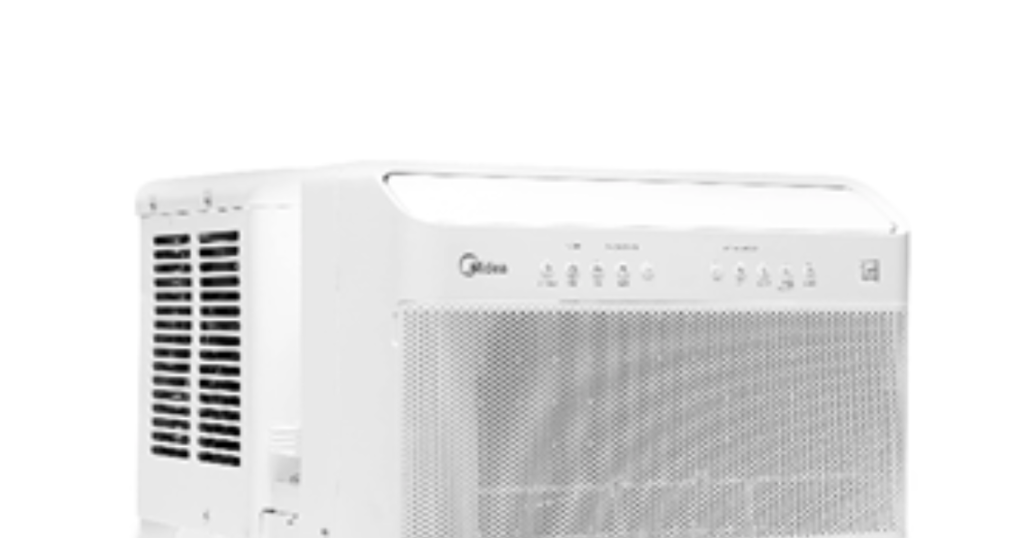Midea has issued a significant recall affecting approximately 1.7 million window air conditioning units due to concerns over mold exposure. The Consumer Product Safety Commission (CPSC) revealed that a drainage issue in specific models could potentially lead to water pooling, increasing the risk of mold growth. This recall follows reports from consumers experiencing respiratory infections linked to mold buildup within these units.
| Article Subheadings |
|---|
| 1) Details of the Recall |
| 2) Health Risks Associated with Mold |
| 3) How to Identify Affected Units |
| 4) Steps Consumers Should Take |
| 5) Retailer and Product Details |
Details of the Recall
The recall covers a wide variety of air conditioner models, specifically the U Window Air Conditioner and U+ Window Air Conditioner. Midea has identified issues where water may collect in these appliances, enabling mold to thrive. According to the CPSC, this problem has led to at least 152 documented cases of mold buildup, raising significant concerns given that mold can exacerbate health issues.
In an official notice, Midea stated, “The company is urging users of the affected units to take necessary precautions and seek alternatives until a solution is found.” The seriousness of mold exposure elevates the need for immediate consumer awareness.
Health Risks Associated with Mold
Mold exposure can lead to a variety of health complications, particularly affecting individuals with pre-existing health conditions such as asthma or allergies. Reports indicate that 17 consumers have suffered respiratory infections, allergic reactions, and symptoms such as coughing, sneezing, and sore throats linked to these units. According to health professionals, prolonged exposure to mold can not only aggravate respiratory problems but may also lead to more severe infections.
Public health experts emphasize the need for vigilance when it comes to household appliances where moisture is commonplace. Officials state, “Preventive measures must be taken seriously to avoid serious health repercussions.” Therefore, understanding the risks associated with air conditioning units is paramount for consumer safety.
How to Identify Affected Units
The affected Midea units can be identified by their specific makes and models, which include several brand names such as Comfort Aire, Danby, Frigidaire, Insignia, Keystone, LBG Products, Mr. Cool, Perfect Aire, and Sea Breeze. Each of these brands has units ranging in dimensions of approximately 22 inches wide by 14 inches high. The CPSC has released a full list of affected model numbers, and consumers are encouraged to check their units thoroughly.
Midea has advised that model numbers can typically be found on the unit’s side or back panels. Consumers are urged to take immediate action if they find their model on the list to avoid potential health risks.
Steps Consumers Should Take
For consumers who own any of the recalled units, Midea recommends contacting them directly for necessary actions. Owners can request a full refund or opt for a free repair of their air conditioner. Midea is providing free shipping labels for consumers looking to return their units. Alternatively, if an owner wishes to dispose of their unit, they may receive a refund by submitting a photograph that shows they have cut the power cord, ensuring the unit cannot be used again.
This proactive approach is aimed at minimizing the health risks posed by these units while also facilitating the return process for consumers. It’s important for owners to act quickly to ensure they are compensated adequately and to protect their health and that of their households.
Retailer and Product Details
The recalled air conditioners were sold at a multitude of retailers, including Best Buy, Costco, and Home Depot, over a two-year period from March 2020 until May 2023. Prices for these units ranged from $280 to $500, making them a substantial investment for consumers.
Midea’s proactive recall underscores the company’s commitment to consumer safety while urging immediate action from those affected. As the recall affects not only U.S. consumers but also nearly 46,000 units sold in Canada, it is imperative that all impacted users take steps to safeguard their health.
| No. | Key Points |
|---|---|
| 1 | Midea is recalling 1.7 million air conditioning units due to mold exposure risks. |
| 2 | Health risks associated with mold include respiratory infections and allergic reactions. |
| 3 | Affected units can be identified through specific model names and numbers. |
| 4 | Consumers have options for refunds or repairs through Midea. |
| 5 | The recall affects various retailers and includes units sold in Canada. |
Summary
This recall action by Midea highlights critical health concerns associated with mold exposure in air conditioning units. With a significant number of consumers affected, it is crucial for owners to identify their units and take appropriate measures to mitigate health risks. The proactive steps by Midea to offer refunds and free repairs reflect their commitment to consumer safety in light of serious health implications.
Frequently Asked Questions
Question: What should consumers do if they own a recalled unit?
Consumers should contact Midea for options regarding refunds or repairs and are encouraged to check if their unit is on the recall list.
Question: How can mold exposure affect health?
Mold exposure can lead to respiratory issues, allergic reactions, and may worsen conditions such as asthma, especially in vulnerable individuals.
Question: Where were the recalled air conditioners primarily sold?
The recalled units were primarily sold at retailers such as Best Buy, Costco, and Home Depot from March 2020 through May 2023.
